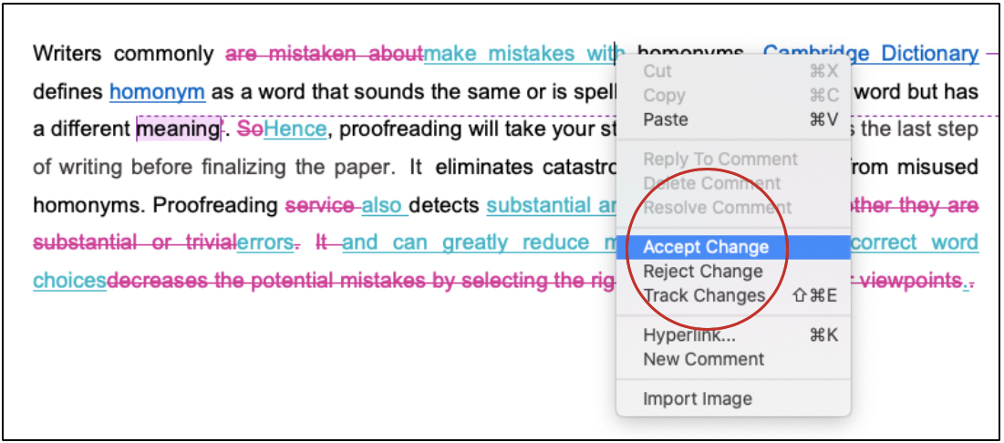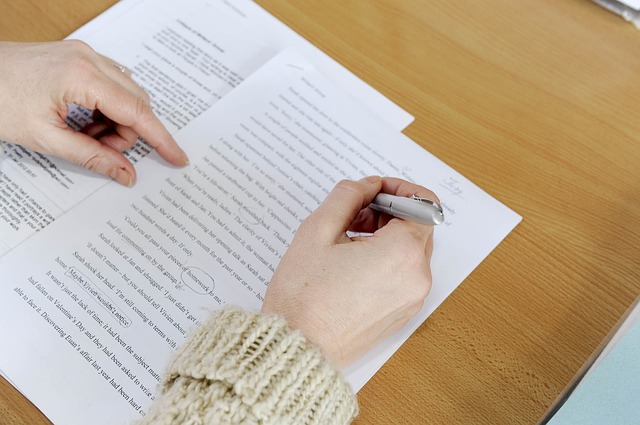Academic writing should be free of all errors and grammatical mistakes to ensure accuracy and professionalism. However, now and then, you come across an error while correcting your work that makes it all extremely difficult — dangling modifiers. What exactly are these, and how can you fix dangling modifiers so that your piece of academic work is perfect in all sense? Don’t worry, as we have the perfect guide to help you through it. In this article, we will cover how you can masterfully eliminate them.

This guide discusses how to fix a dangling modifier in academic writing. To give you an opportunity to practice proofreading, we have left a few spelling, punctuation, or grammatical errors in the text. See if you can spot them! If you spot the errors correctly, you will be entitled to a 10% discount.
Academic writing should be free of all errors and grammatical mistakes to ensure accuracy and professionalism. However, now and then, you come across an error while correcting your work that makes it all extremely difficult — dangling modifiers.
What exactly are these, and how can you fix dangling modifiers so that your piece of academic work is perfect in all sense? Don’t worry, as we have the perfect guide to help you through it. In this article, we will cover how you can masterfully eliminate them. Now, without further ado, let us get right into the topic.
A dangling modifier is a grammatical error in which a modifier at the beginning of the sentence modifies the wrong phrase or word, thus creating a different meaning than what was intended. A dangling modifier is a word or phrase that modifies a word not clearly specified in the sentence. A modifier describes, clarifies, or gives more detail about a concept.
For example, this sentence here — Dizzy from fever, the question paper did not make any sense. Here, dizzy from fever is the modifier that is modifying the immediate noun — the question paper. However, that is not the intended meaning of the sentence. The sentence here means that due to fever, the subject was not able to make any sense of their question paper. But because of the presence of the dangling modifier, it seems as if the question papers themselves are dizzy from fever.
There are many names for such modifiers, including dependent clauses, participial phrases, modifying phrases, and so on. No matter what names they carry, they all cause the same issue — modifying a word or phrase in the sentence that is not directly mentioned.
Here are some other examples of dangling modifiers:
Hungry and parched, my lunch was a great relief for my friends.
Sneaking through the garden, the sculpture scared her.
Raining constantly, my plan was delayed.
When you are writing for your academic work, dangling modifiers can be one of your biggest enemies. The reason is that academic works require you to write in a precise and clear format. Dangling modifiers here can make your writing confusing and inaccurate. Therefore, it is important to ensure that your work is free of any dangling modifiers.
Now that you have understood what dangling modifiers are, it is now time to master your skills of quickly spotting one. Usually, you pay attention to such errors during the proofreading and editing stages. Here is how you do it:
When you are proofreading, a great way to spot any dangling modifier is to read each sentence for itself. Instead of reading an entire paragraph all in one go, take your time to go through each line separately.
While you are proofreading and you come across a sentence that is divided by a comma, try reading the first phrase and understand which noun the modifier is trying to impact.
Next, look for the modifying noun. Check if the first noun phrase after the modifier is the modifying noun and if the modifier is successfully affecting it.
Now that we have learned what a dangling modifier is and how you can locate one, it is time to get into the details of how you can fix a dangling modifier. Here is how to do it:
Dangling modifiers occur when the main subject is missing from the sentence. Hence, a quick way to fix that is to include the subject itself. So, instead of Dizzy from fever, the question paper did not make any sense; the sentence can be written as — Dizzy from fever, I could not make any sense of the question paper.
Another way to go about handling dangling modifiers is to change the introductory phrase by including the subject there. This will also not affect the second half of the sentence if that is what you are aiming for. Therefore, Dizzy from fever, the question paper did not make any sense becomes — Because I was so dizzy from fever, the question paper did not make any sense.
Lastly, you can always rearrange the sentence to eliminate any dangling modifiers. So, Dizzy from fever, the question paper did not make any sense will become — The question paper did not make any sense to me because I was dizzy from fever.
Dangling modifiers can be a bit of a problem when you are writing for an academic paper. However, it is not an impossible hurdle and can easily be overcome by sound proofreading and editing. Therefore, if you are skeptical about any dangling modifiers in your work, make sure to edit and proofread thoroughly. You can also rely on professional editing and proofreading services to give you the extra bit of advantage.
Best Edit & Proof expert editors and proofreaders focus on offering manuscripts with proper tone, content, and style of academic writing, and also provide an upscale editing and proofreading service for you. If you consider our pieces of advice, you will witness a notable increase in the chance for your research manuscript to be accepted by the publishers. We work together as an academic writing style guide by bestowing subject-area editing and proofreading around several categorized writing styles. With the group of our expert editors, you will always find us all set to help you identify the tone and style that your manuscript needs to get a nod from the publishers.

You can also avail of our assistance if you are looking for editors who can format your manuscript, or just check on the particular styles for the formatting task as per the guidelines provided to you, e.g., APA, MLA, or Chicago/Turabian styles. Best Edit & Proof editors and proofreaders provide all sorts of academic writing help, including editing and proofreading services, using our user-friendly website, and a streamlined ordering process.
Visit our order page if you want our subject-area editors or language experts to work on your manuscript to improve its tone and style and give it a perfect academic tone and style through proper editing and proofreading. The process of submitting a paper is very easy and quick. Click here to find out how it works.
Our pricing is based on the type of service you avail of here, be it editing or proofreading. We charge on the basis of the word count of your manuscript that you submit for editing and proofreading and the turnaround time it takes to get it done. If you want to get an instant price quote for your project, copy and paste your document or enter your word count into our pricing calculator.
Contact us to get support with academic editing and proofreading. We have a 24/7 active live chat mode to offer you direct support along with qualified editors to refine and furbish your manuscript.
Follow us on Twitter, LinkedIn, Facebook, Instagram, and Medium.
For more posts, click here.
How to Determine Variability in a Dataset
14.10.2023
How to Determine Central Tendency
19.02.2023
How to Specify Study Variables in Research Papers?
14.01.2023
Population vs Sample | Sampling Methods for a Dissertation
14.01.2023
How to Ensure the Quality of Academic Writing in a Thesis and Dissertation?
04.12.2022
How to Avoid Anthropomorphism in Your Dissertation?
04.11.2022
How to Write a Research Methodology Section for a Dissertation and Thesis
07.08.2022
How to Write a Theoretical Framework for a Dissertation and Thesis?
05.08.2022
How to Write Literature Review for a Dissertation and Thesis
02.08.2022
How to Write a Dissertation and Thesis Introduction
31.07.2022

Research databases are the foundation of any dissertation or research paper. Scanning through previous findings and research is a key factor while compiling your research proposal or a thesis. Here we discuss the top 5 free online journal and research databases for academics.
Continue Reading
For writers starting, paraphrasing might seem quite a difficult thing to master. However, everything can become better with practice and some good advice. Therefore, if you are getting into the world of academic writing and want to know how to paraphrase like a pro, we have a few tips that you might find helpful. This article discusses the basic steps of successful paraphrasing.
Continue Reading
One of the major struggles that English speakers and writers suffer from is the different variants of American English and British English. Mistakes regarding these variants are very common that even experts get confused at times. Therefore, if you are struggling with these differences, don’t worry — you are not alone. Now, what you can do is gradually learn more about the two English variants. We assembled a comprehensive guide that highlights the basic differences between American and British English.
Continue Reading
Writing for academic purposes entails writing literature that is formal in tone, objective, structure-wise complex and contains a fair amount of academic jargon. As such, there are certain words and phrases, collectively called taboo words, that academic writers omit when writing manuscripts. Academic writing encourages their elimination to maintain the “formality” of academic documents. This article discusses the definition of taboo words to avoid and examine their use cases.
Continue Reading
After writing your manuscript, you may likely decide on an editor to perform the final checks on your document. Mostly, authors make the mistake of sending their manuscripts to their editors, without providing adequate information about specifications on the service they seek. With such limited information, your editor may produce an unsatisfactory job with limited information at his/her disposal. Thus, to ensure that your editors provide the best possible service, which will prevent journals from rejecting your manuscripts on the grounds of noncompliance to journal requirements, the following information should be provided beforehand.
Continue Reading
An abstract, is an important part of an academic work and a synopsis of a longer study such as a dissertation or thesis. Its most critical aspect is precise reporting of the objectives and outcomes of your research. Thus, the readers can learn about your work by perusing your abstract.
Continue Reading
Researchers develop theories to explain phenomena, build connections, and make educated guesses. Therefore, you illustrate the existing ideas supporting your dissertation or thesis in a theoretical framework, depicting that your work has a solid foundation.
Continue Reading